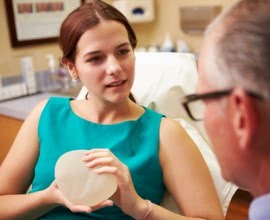What Makes a Plastic Surgeon?
Plastic surgery, also known as cosmetic surgery, is one of the most popular and sought after fields of practice in the medical world today. The rise in the number of plastic surgeons has spawned hundreds of practitioners, private surgeries and training academies, all of which have served to boost the market for plastic surgery. Customers seeking cosmetic surgery are often in the market for popular procedures such as breast enlargement, tummy tucks, facelifts or liposuction, each one covering areas of great concern in the aesthetic world today. Because of the inflated market for these things there are now many cheap options available and it is not uncommon to find customers engaging in medical tourism to find their plastic surgeon.
We have established that this is a common thing in our age, yet the information of how plastic surgeons become plastic surgeons is fairly scarce and often unknown to patients before they decide to undergo a procedure. In this article we examine the specifics regarding how plastic surgeons prepare for their careers and what consumers should look out for when considering surgery.

Medical Training
It is strongly recommended to make sure that your plastic surgeon has at least five years of practical surgical training under their belt, with some physicians having up to ten years in many cases. Enquiring into the training and qualifications of your plastic surgeon should reveal the extent of their education, for example, an M.D or D.O program requires four years of training after graduation from university at a medical center. Looking out for these telltale qualifications, and even the reputation of their medical school, will give you a good idea of your surgeon's experience.
Registration with an Official Body
Plastic surgeons are usually registered with an official body of regulation according to the country they practice in and the procedures they specialise in. These kinds of things are not hard to find out by any means and you will often be able to contact the organisation itself to find out more. In England, for example, you will find plastic surgeons registered with the General Medical Council. Each board has its own regulations too, for example the American Board of Plastic Surgery is known for its requirements of surgical knowledge in areas that fall beyond the demands of cosmetic surgery.

Proof of Recent Work
A much more intuitive aspect of plastic surgery requirements is that of previous work. All plastic surgeons are expected to provide at least some photographs of the nature of their work and the results that have been achieved. These are very commonly asked for and are often provided on the website of the clinic in question. Knowing for yourself exactly what you want and matching up with the skills of your surgeon is the most personal part of the procedure, so never be afraid to ask away.
As mentioned before, the standards for plastic surgery continue to increase as the market grows and we can only expect to see further regulations and qualifications entering the practice as time goes on. This will be good news for consumers and surgeons alike, who can both be assured of the official and verified status of their work.
Sources:
http://learn.org/articles/What_is_Required_to_Become_a_Plastic_Surgeon.html
http://work.chron.com/qualifications-plastic-surgeon-6809.html
http://www.nhs.uk/Livewell/cosmeticsurgery/Pages/Surgeonqualifications.aspx
https://www.realself.com/question/searching-plastic-surgeon-qualifications-credentials-md














